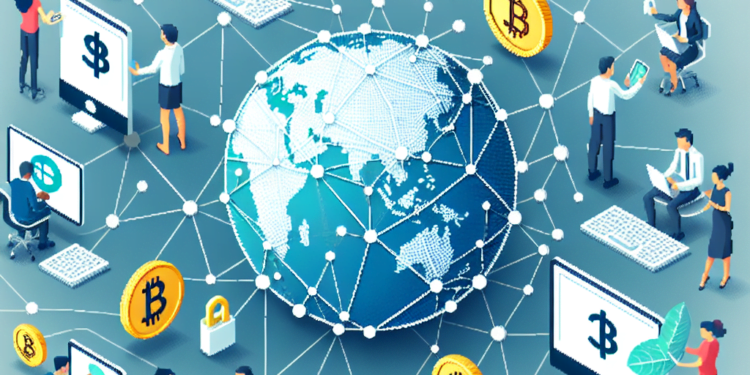Decentralized Finance: A Revolution in Today’s Financial Ecosystem
Decentralized Finance, abbreviated as DeFi, is a novel financial framework that seeks to democratize finance, stripping power away from traditional intermediaries imperially sitting in the middle of financial operations. This falls neatly aligned with an ever-increasing global emphasis on democratization, privacy, and individual autonomy. But why does DeFi matter in today’s financial ecosystem, and what implications does it present for global finance? Let’s dig into it!
Redefining Access to Financial Services
Financial inclusion remains an illusive fairytale for nearly 1.7 billion adults across the global sphere. The nefarious whims of geography, politics, education, and socioeconomic inequality confine these individuals in the clutches of a cash-based world that impedes access and holds tremendous risk.
DeFi changes this narrative fundamentally. The DeFi architecture is built upon public blockchains, primarily Ethereum. This permits anyone with a smartphone and internet connectivity to access financial services, devoid of the cumbersome requisites typical legacy financial institutions thrust their way. With DeFi, banking services are no more a privileged luxury, instead, they become a basic right, universally available.
Transparency, Efficiency, and Security
DeFi protocols are inherently transparent because they’re built on blockchain technology, a public ledger recording transactions for everyone to see. This shows a stark contrast to oftentimes obscurity shrouding the workings of traditional finance, clearing a modern pathway to track where your money is and what it’s being used for.
Apart from transparency, DeFi brings a new level of efficiency. Thanks to smart contracts, a type of self-executing contract with the terms directly ingrained in the code, DeFi can quietly brush aside traditionally elongated and taxing transactional processes.
The robust security is another crown jewel of DeFi. Encrypted transactions on the blockchain network stave off the threat of data breaches, and the distributed nature of the system means there is no single point of failure.
A More Competitive Financial Ecosystem
By virtue of its democratizing nature, DeFi is stoking fierce competition within the financial ecosystem. Traditional financial institutions are finding themselves in a tussle to match the efficiency, accessibility, and transparency that DeFi offers. This competition will inevitably lead to better services and products in the financial market to better cater to the ever-evolving needs of consumers.
The Significance is Clear: Power to the People!
DeFi is unfurling a financial world that empowers individuals. It prunes intermediaries from the picture, democratizes access, and instills transparency, efficiency, and security. These features make DeFi not only a significant player in today’s financial world but also a leader dictating the future trajectory of global finance.
The shift towards DeFi crowns consumers as kings, giving them control over their financial operations. The result? A new, consumer-centric model of finance, one that disrupts existing power structures and promises a more inclusive, transparent, and fair financial future.
To stay updated with more trending and insightful articles regarding DeFi, visit this website: DeFi Daily News
Conclusion
Without a smidgen of doubt, DeFi is a game-changing revolution in the financial ecosystem. It brings with it a potential to fundamentally shift the way we view, interact with, and think about finance. Far from being a fringe concept, DeFi is rapidly integrating into the mainstream, pushing traditional finance to adapt or face the inevitable prospect of obsolescence.
FAQs about Decentralized Finance (DeFi)
What exactly is DeFi?
Decentralized Finance (DeFi) is a movement that leverages decentralized networks to transform old financial products into trustless and transparent protocols that run without intermediaries.
Why should I care about DeFi?
If you’ve ever been frustrated by the lengthy processes, high fees, or the general opacity of financial systems, DeFi offers a promising alternative. With advantages like accessibility, transparency, efficiency, and security, DeFi is poised to reshape the world of finance.
How secure is DeFi?
DeFi applications are built on top of blockchain platforms like Ethereum and thus inherit their security measures. This means hacking a DeFi application is as difficult as hacking the underlying blockchain itself.
Is DeFi controlled by anyone?
No, DeFi applications run on open-source software and depend on user activity. There’s no central party controlling the system, making it a purely peer-to-peer system.



















